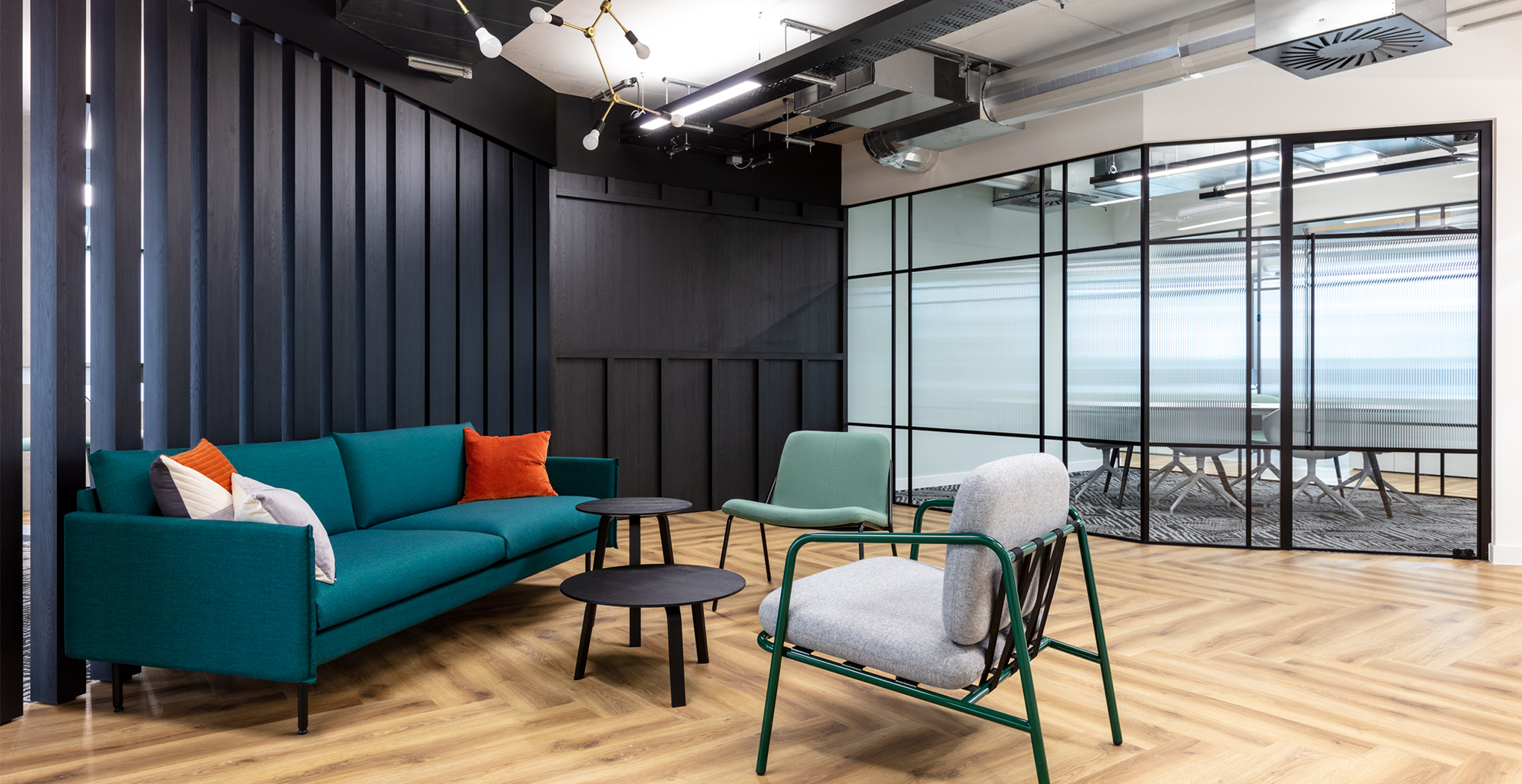The commercial property market was overdue a shake-up. It came faster than we expected as a frightening pandemic swept the world, but we believe the shift was inevitable. What shift are we talking about? Primarily, balancing the scales so landlords and tenants are encouraged to collaborate with transparency and flexibility. To understand why the future of the UK commercial property market is in short-term leases with a long-term outlook, and what that means, we first need to understand what’s changed in the industry recently.
The long-established options for office space:
Traditional
Tenancies typically range from three to 20 years, with the occupier taking full responsibility for the space. They can refurbish and redesign at will but are accountable for all ongoing costs for maintenance and services.
Serviced
Office providers give occupants everything they need to work: utilities, security and IT infrastructure, cleaning, equipment, furniture, even a mail service, all in a fully fitted-out space. Lease terms can be as short as weekly because multiple companies share the same floorplate.
Managed
Blending the traditional and serviced models, managed offices include elements of bespoke fit-outs or branding on a medium-term lease (usually one to five years). Landlords might incentivise tenants by offering a services package, but the tenant has their own independent space, unlike in a serviced office.
The rise (and fall?) of co-working
Co-working is the serviced office model rebranded with a promise of community. Spurred by rapid growth and slick branding, the industry blossomed. Last year London operators leased 143,000 square metres of shared office space, the most in any major European city. But even back in October 2019, before the global pandemic took hold, the UK’s largest co-working operator was in trouble. It became evident that the business model had a fatal flaw.
Coupled with this supply-side instability is the problem of tenant loyalty. Co-working serves its purpose until a start-up reaches 30 or so employees, at which point they outgrow the boundaries. Suppliers are happy to let them go because the steady flow of entrepreneurs has yielded lucrative returns in recent years.
When co-working took off, serviced office suppliers who had become complacent suddenly saw tenancy rates climbing. The shift helped to balance the power between tenant and landlord, and in the space of a few years, changes led by consumer demand began rippling through the market. But recent history shows the model sits on an unstable foundation.
Co-working is the serviced office model rebranded with a promise of community. Spurred by rapid growth and slick branding, the industry blossomed. Last year London operators leased 143,000 square metres of shared office space, the most in any major European city. But even back in October 2019, before the global pandemic took hold, the UK’s largest co-working operator was in trouble. It became evident that the business model had a fatal flaw.
Coupled with this supply-side instability is the problem of tenant loyalty. Co-working serves its purpose until a start-up reaches 30 or so employees, at which point they outgrow the boundaries. Suppliers are happy to let them go because the steady flow of entrepreneurs has yielded lucrative returns in recent years.
When co-working took off, serviced office suppliers who had become complacent suddenly saw tenancy rates climbing. The shift helped to balance the power between tenant and landlord, and in the space of a few years, changes led by consumer demand began rippling through the market. But recent history shows the model sits on an unstable foundation.

the managed office solution
Managed offices provide a more secure platform for growth on both sides of the equation. Without the commitment or costs of traditional agreements, tenants have ample opportunity to thrive in a separate and authentic workplace:
- Brand-building opportunities
- Defined corporate identity
- Tighter control of health policies
- Independent meeting facilities
- Bespoke design choices
- Secure premises
The landlords reclaiming market share are those pivoting to offer short-term leases that enable long-term growth.
These potential tenants are fast-growing companies, innovative teams, agile businesses – the occupants landlords want. Capturing their attention requires a conscious shift away from constrictive leases to embrace flexibility in a physical environment suited to growth.
Finding balance with Thirdway
In a changing working world, businesses need different spaces on different terms. Thirdway Pulse partners with landlords to provide top-class services, giving tenants the freedom to focus on their business while we manage their everyday environment.
